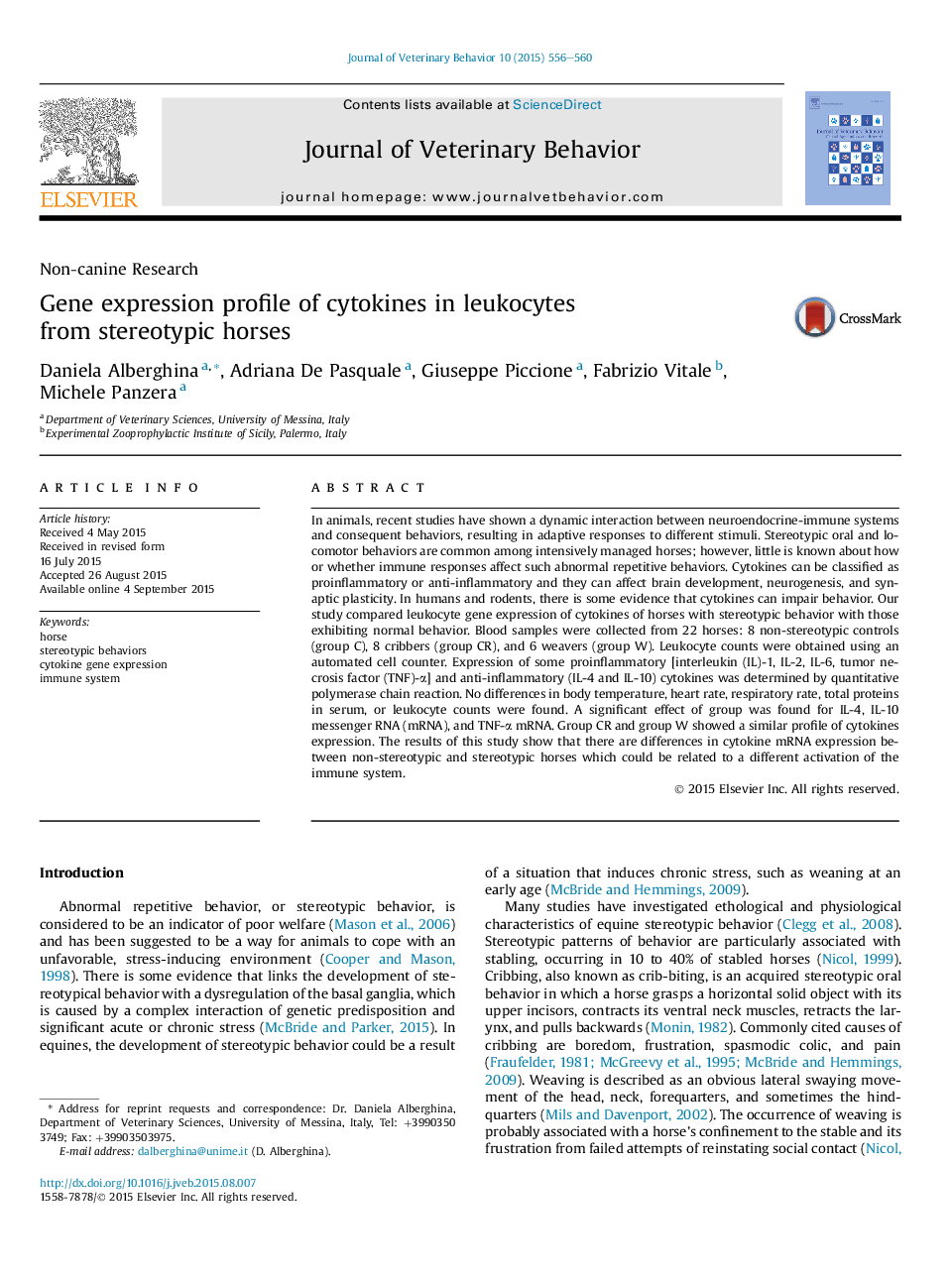| Article ID | Journal | Published Year | Pages | File Type |
|---|---|---|---|---|
| 8484396 | Journal of Veterinary Behavior: Clinical Applications and Research | 2015 | 5 Pages |
Abstract
In animals, recent studies have shown a dynamic interaction between neuroendocrine-immune systems and consequent behaviors, resulting in adaptive responses to different stimuli. Stereotypic oral and locomotor behaviors are common among intensively managed horses; however, little is known about how or whether immune responses affect such abnormal repetitive behaviors. Cytokines can be classified as proinflammatory or anti-inflammatory and they can affect brain development, neurogenesis, and synaptic plasticity. In humans and rodents, there is some evidence that cytokines can impair behavior. Our study compared leukocyte gene expression of cytokines of horses with stereotypic behavior with those exhibiting normal behavior. Blood samples were collected from 22 horses: 8 non-stereotypic controls (group C), 8 cribbers (group CR), and 6 weavers (group W). Leukocyte counts were obtained using an automated cell counter. Expression of some proinflammatory [interleukin (IL)-1, IL-2, IL-6, tumor necrosis factor (TNF)-α] and anti-inflammatory (IL-4 and IL-10) cytokines was determined by quantitative polymerase chain reaction. No differences in body temperature, heart rate, respiratory rate, total proteins in serum, or leukocyte counts were found. A significant effect of group was found for IL-4, IL-10 messenger RNA (mRNA), and TNF-α mRNA. Group CR and group W showed a similar profile of cytokines expression. The results of this study show that there are differences in cytokine mRNA expression between non-stereotypic and stereotypic horses which could be related to a different activation of the immune system.
Related Topics
Life Sciences
Agricultural and Biological Sciences
Animal Science and Zoology
Authors
Daniela Alberghina, Adriana De Pasquale, Giuseppe Piccione, Fabrizio Vitale, Michele Panzera,
